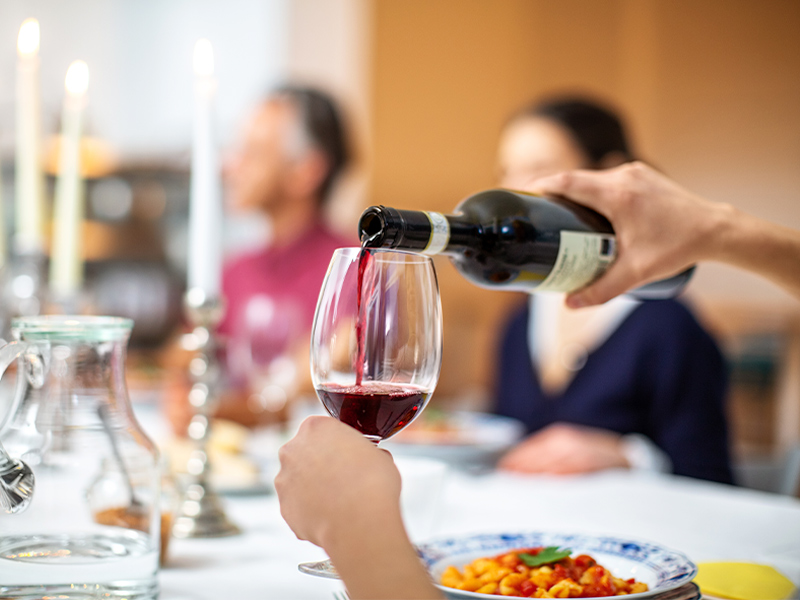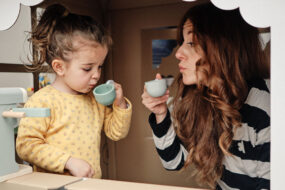Why you need to think twice about offering alcohol to teens
Convinced a small glass of alcohol at home could do your teen no harm? The experts are going to stop you right there. Here’s why.
“Why can’t I have a sip? That’s so unfair – all of my friends’ parents let them have wine!”
Sound familiar? Take heart.
For adults on the receiving end of a teen’s excuse that everyone else’s parents let them drink alcohol, it can be helpful to know that this is actually far from the case, DrinkWise CEO Simon Strahan says.
“Research tells us that there’s been a significant rise in teenagers abstaining from alcohol; in 2007, 39 per cent abstained, but now it’s 72.5 per cent, and this decline has removed a lot of the peer pressure in the first place,” Simon says.
“As for the idea that ‘all the other parents’ are supplying their teenagers with alcohol, that’s also a myth – we know 87 per cent of parents do not allow their under-age children any alcohol.”
Of those who do, however, the findings are confronting.
Risks of teen drinking alcohol at home
The Longitudinal Study of Australian Children found that teens who were allowed to drink at home were more likely to have experienced alcohol-related harm compared to those who drank without their parents’ permission.
“Drinking alcohol contributes to the three major causes of teen deaths: injuries, homicide and suicide, and it can also affect how the brain develops in young people until the age of 25,” Alcohol and Drug Foundation CEO Dr Erin Lalor AM says.
“This includes areas of the brain associated with attention, memory and decision-making abilities.”
Dr Lalor adds drinking while these areas are still developing could increase the risk of memory problems, learning difficulties, mental health issues, and alcohol dependence.
And while some parents may have good intentions, believing that letting their teenagers have a sip of wine here and there might enable them to drink more responsibly as they become adults, there’s evidence it can do the opposite.
“We now know that the earlier a young person starts drinking, the more frequently they drink, the more likely they are to experience alcohol-related harms or develop an alcohol dependence later in life,” Dr Lalor says.
How to talk to teens about drinking
On a happier note, Simon says teenagers today feel far less pressure to drink alcohol than their parents did in youth.
“They’re more aware of their health, and they’re conscious of not appearing a fool on social media, which is a clear driver for this generation,” Simon explains.
However, if you find your teen is pushing or facing social pressure to drink, it’s time to take a look at how best to deal with the situation.
“If parents are setting clear boundaries around alcohol, teens are more likely to live within them, but that conversation needs to start early and happen often,” Simon says.
While there’s no set formula for these conversations, the Alcohol and Drug Foundation offers the following tips:
- Get the facts: the more you know, the better equipped you’ll be, so be sure to check out resources such as the Talk About It guide and the Positive Choices Parent Booklet.
- Keep things relaxed by using social media posts or themes from movies or TV shows as prompts to start the conversation.
- Be curious; ask your teen plenty of questions about the topic, and listen to their opinions so they understand they can come to you with any concerns they may have.
- Focus on their health rather than making exaggerated statements about the dangers of drinking.
- Be clear about your own beliefs when it comes to the use of alcohol and other drugs.
- Set clear rules, and consequences for breaking them.
- Workshop strategies to help them get out of sticky situations, and let them know you’re always available to pick them up if they’re feeling uncomfortable.
What to do if your teen is going to a party
If your teen is headed to a party where you know alcohol will be served (or brought along by other teens), it’s a good opportunity to talk about your expectations.
“This can be about whether they are allowed to drink or not, the time they need to be home by and how they’re getting home, and supporting them with safer partying tips,” Dr Lalor says.
Simon adds that it’s also a good idea to contact the adult hosting the party (if this is the case).
“You need to say, ‘my child is not going to be drinking and you need to be aware of that and ensure that remains the case’,” he says.
More on raising teens:
- 10 golden rules for parents of teens
- What to do if your teen is hanging with a bad crowd
- Disordered eating: what parents can do to help
Written by Dilvin Yasa.
If you or your teen need further support, visit DrinkWise or Alcohol and Drug Foundation, or call the DrugInfo line on 1300 85 85 84.





